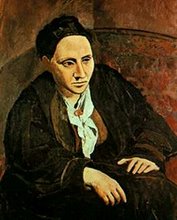
Anastasopoulos's reading leans toward the dialectical attitude of Derrida's White Mythology to describe something that is much more the Deleuzian/Guattarian and-and-and. And I think the wording as much as any theory leads in this essay toward the dead ends I've highlighted.
What if Penguin has an idea and Lambert has an idea? Why can't they share that idea? Anastasopoulos doesn't suggest they can't, but his language seems to lead toward that conclusion.
This is not a particularly astute observation I'm making. It's more of a quibble, but a quibble I may have less qualms about as I write through the play of negatives in the passage in Mackey's novel Djbot Baghostus's Run in which the women of novel reject an eminent gender imbalance.

1 comment:
DRAT! I posted this to the poetry lab blog instead of to my own. Um, I guess I'll leave it and dupe it over on my blog. Anyway, I'm talking about a novel by Nathaniel Mackey. Since one thing I'm interested in about Mackey's work is that poetry becomes a form of knowledge, I guess I'll say that it's not a coincidence that this picture looks like the altered book projects we were doing. JP
Post a Comment